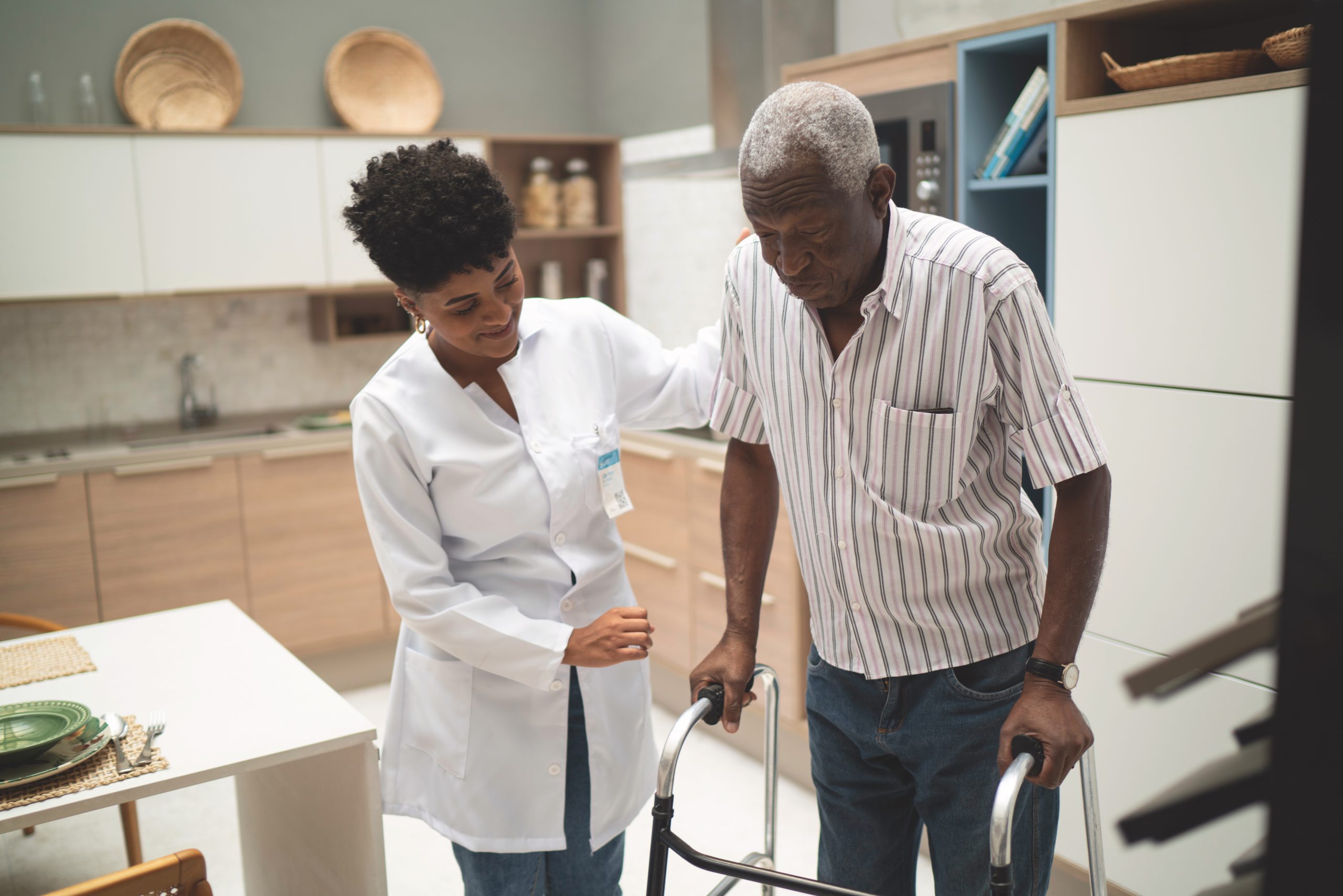I’m a palliative care physiotherapist. I provide exercises for people who are dying and give them hands-on help to move so that they can remain as mobile and independent as possible. I consider this a great privilege.
As a healthcare worker, I am task oriented. I am trained to get things done to help a patient get better. But, as a palliative caregiver, I am with patients who are going to die. I am present through touch. Being present during the dying process is intimate. I learn about people’s deepest fears, such as the loss of functional independence, the loss of dignity in not being able to toilet, the loss of cognitive ability, or being in too much pain to be able to connect meaningfully with loved ones.
You may unsubscribe from any of our newsletters at any time.
There are also beautiful, uplifting moments: assisting a man walk to the bathroom and keep his independence and dignity for a while longer; encouraging an anxious woman to get out of bed so she can go outside for the first time in months; supporting a young man with a neurodegenerative disease to stand for the Remembrance Day ceremony; facilitating a woman’s discharge so her final wish to die at home can be fulfilled. These moments keep me going, but they don’t tell the whole story, and they are not frequent enough to give me a sense of purpose by themselves. Even in palliative care with its focus on quality of life, death isn’t always inspirational.
More on Broadview:
No promises can be made, no treatments will guarantee quality of life. I can only be present in the fear, pain and uncertainty, which at times seem intolerable. And yet when the fears are realized and the person can no longer walk, toilet themselves, or interact with others as they always have, they discover that the new situation they find themselves in is not as intolerable as they had expected. The fear was worse than the reality, and they have figured out how to reorient their hope.
Beyond the hope of a cure, beyond the hope of remaining independent, they have found something else to hope in. Helping patients do this is an important part of the work of palliative care health professionals. I have had to change my thinking from curing to providing comfort, support and quality of life. I have become a better physiotherapist and a better person in the process by slowing down and really listening.
As a Christian, I also have experience with struggling to change my priorities from the successes that the world promises to expectant hope in the kingdom of God. This both informs and is shaped by my work in palliative care. I have learned from my patients, whether they are religious or not, what it means to hope for something beyond good health and an easy life. It points me back to God’s promises of peace and God’s presence with me in the midst of struggles, rather than the removal of them.
***
Donna Matheson lives in Toronto.
EDITOR’S NOTE 05/17/2021: This story has been updated to reflect more recent revisions to the piece.
This story first appeared in Broadview’s June 2021 issue with the title “Being Present: A Physiotherapist on Hope in Palliative Care.”













